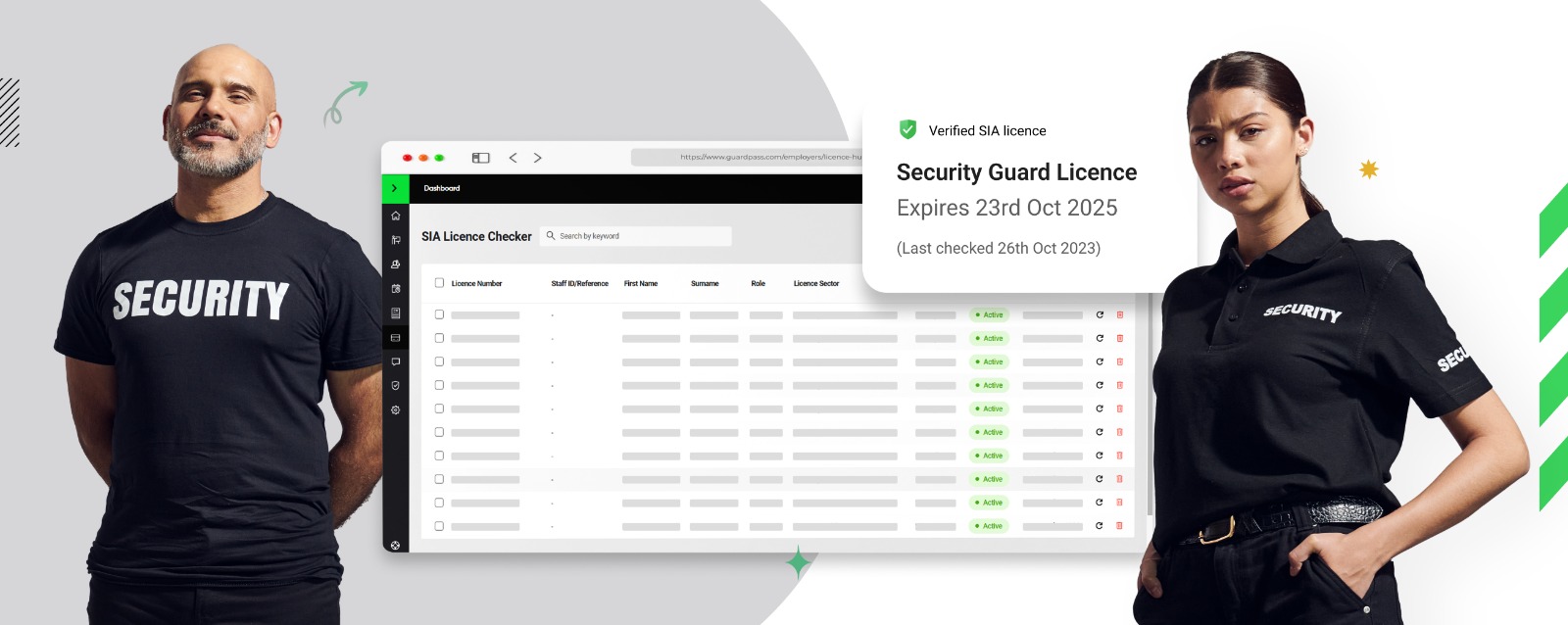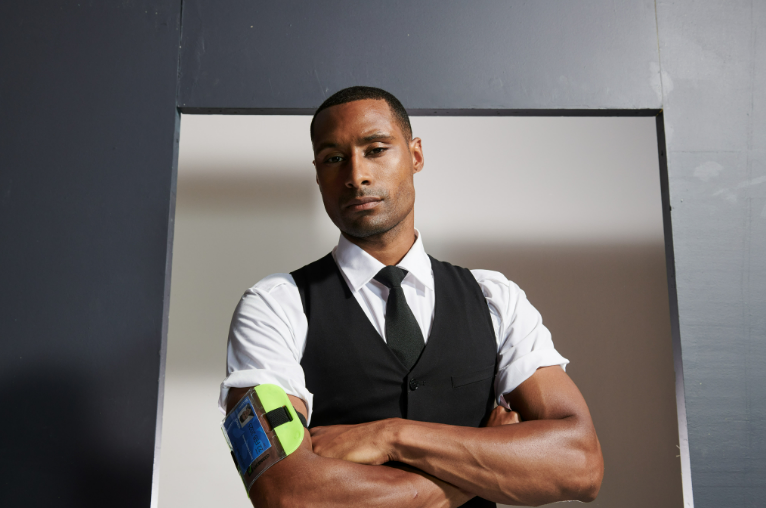A security officer is primarily responsible for ensuring the safety and security of a facility. However, certain work environments may require additional skills beyond the basics. Did your candidates need to handle specialised security equipment, manage security software, or respond to unique security challenges? Consider asking questions related to these job aspects. The ideal candidates for these types of roles are self-motivated, dependable, detail-oriented, and can maintain focus even when working in tough situations. Utilise the following list of essential interview questions in security guard hiring to assess their relevant experience in the security field.
But first, let’s discuss what makes a good security candidate and why these questions are important.
What does a good Security Candidate look like?
Top security talent possess a unique blend of skills and qualities. Observant, quick thinkers, eliable, thorough, self-motivated, and excellent communicators! They ace these skills. Experience and training matters! We got it, But it’s also essential to gauge your candidate’s ability to handle difficult situations and work collaboratively as part of a team. Want a security officer who can read situations, act swiftly, and work harmoniously with others when it matters most? Let’s dive into the top 10 security interview questions to secure the Top security talent.
Top 10 security interview questions to ask
1. Tell me about a time when you had to deal with a difficult or confrontational person. How did you handle the situation?
This question assesses a candidate’s conflict resolution skills and their ability to remain composed under pressure. Look for examples of effective communication and de-escalation techniques. It gives you a peek into their ability to handle conflicts and stay cool when things get heated. You’re not looking for superheroes here, just someone who can handle tough situations with grace and tact.
2. What is your experience with using security cameras and other surveillance equipment?
Here, you’re looking for technical competence. Candidates should be familiar with operating surveillance equipment and understanding its role in security. They should understand how these devices fit into the bigger security picture, how they aid in monitoring, and ultimately, how they contribute to keeping everything safe and sound. A practical know-how and a clear understanding of the game.
3. What is your experience with responding to security incidents?
Assess their ability to react swiftly and appropriately to security breaches. Look for experience in handling incidents and following security protocols.
Ask them about specific incidents they’ve dealt with in the past. Did they react promptly and appropriately? Did they follow the established security protocols? These real-world situations reveal a candidate’s ability to keep a cool head and take the right steps when the pressure is on. That’s the kind of hands-on experience you want to see in a security officer.
4. How do you stay up-to-date on the latest security threats and vulnerabilities?
A proactive security officer keeps abreast of emerging threats. Candidates should demonstrate a commitment to ongoing learning and awareness of current security issues. An ideal candidate who is updated, regularly reads security news, follows industry blogs, engages in discussions with their colleagues, keeps ear to the ground and shares insights with security peers.
5. What is your experience with working as part of a team?
When you look for someone’s experience with teamwork, you want to hear stories, and hear about those moments when they rolled up their sleeves and got the job done together.
So, ask candidates to share examples of how they’ve been part of a team’s success. How did they contribute? What role did they play? And, most importantly, how did they keep the lines of communication wide open with their fellow team members? These stories give you a sense of their teamwork prowess.
6. Describe your experience with security systems. How have you used these systems to identify and mitigate security risks?
You want to know how they’ve used these tools to spot and tackle security risks.
Ask them, how well-acquainted are you with these systems? Have you had the chance to work with access control systems, which regulate who gets in and out of a place? How about intrusion detection systems, designed to spot any unwanted entry or unusual activity? And last but not least, video surveillance systems – how have you used these to keep a watchful eye on things?
Tell them to share their experience on how they’ve put them to practical use in identifying and nipping security risks.
7. What is your experience with conducting security audits?
Assess their ability to review and improve security procedures. Look for candidates who can identify weaknesses and suggest improvements.
Evaluate their capacity to take a close look at security procedures, find any chinks in the armor, and come up with smart ideas to make things better. Look for someone who can dig deep, spot the weak spots, and suggest practical improvements.
In a nutshell, seek individuals who don’t just audit for the sake of it but audit to enhance security.
8. What is your experience with writing security reports?
Candidates should be able to articulate incidents and procedures clearly and concisely in written reports. You see, effective documentation is like the glue that holds the security operation together. It’s not about crafting verbose, overly complex documents; it’s about being clear, concise, and spot-on.
An ideal candidate has hands-on experience summarising incidents and detailing procedures in a way that anyone can understand. Everyone involved knows exactly what happened and what steps to take next. Clarity is key to effective communication and that’s what an ideal security officer brings to the table.
9. What is your experience with training others on security procedures?
This question justifies your candidate’s ability to lead as well as their knack for sharing knowledge effectively.
Have they been in a position where they’ve had to teach their security smarts to others? It could be new hires, team members, or even clients. This question isn’t limited to classroom-style training; it could be on-the-job guidance or helping someone understand the security protocols.
Find out if they can not only grasp the security details themselves but also explain it in a way that clicks with others. Did they translate those security procedures into plain, understandable language? so that everyone is on the same page and can follow them correctly.
10. What are your salary expectations?
It might sound simple, but it’s also a piece of the puzzle that you need to address early on security guard hiring. Make sure that you’re on the same page from the get-go. Their expectations and what you can offer need to align for this to be a smooth journey for both of you.
Share your thoughts openly. It helps you understand their needs and ensures that you can provide a compensation package that values your candidate’s skills and experience appropriately.
Ask Behavioral and Situational Questions
In addition to the above questions, consider asking behavioural and situational questions in security guard hiring. They’re like little puzzles.
Imagine tossing out a scenario and asking candidates how they’d handle it or describing a hypothetical situation and having them walk you through their approach.
These questions are like windows into a candidate’s mind. You get to see how they think, how they solve problems, and whether they’ve got the judgement and practical skills to back it up. It’s a bit like seeing a sneak peek of how they’d handle real-life situations on the job.
Master behavioural security interviews here
Conclusion
As we wrap up, armed with these key interview questions, it’s your chance to spring into action. Put them to work in your security guard hiring process to spot top security talent who will fortify your organisation’s safety. Don’t settle for the ordinary security guard; dive deep into their experiences and learn how they’ve tackled real-life situations. These questions are your secret weapon in finding those who excel when it counts. So, go beyond the usual interview script, uncover their true abilities, and build a security team that’s ready for anything.
Join the UK’s top hiring platform designed specifically for the security industry “GuardPass”. Gain access to an extensive pool of over 140,000 security professionals, all equipped with verified SIA licences.Post job openings or search through our CV database and find your next top security talent here.



